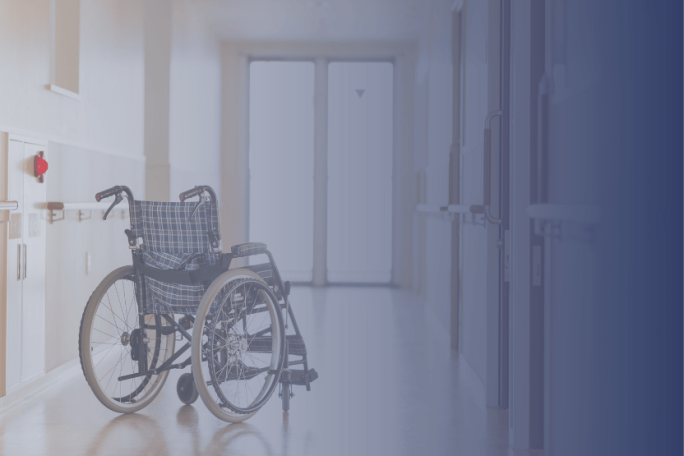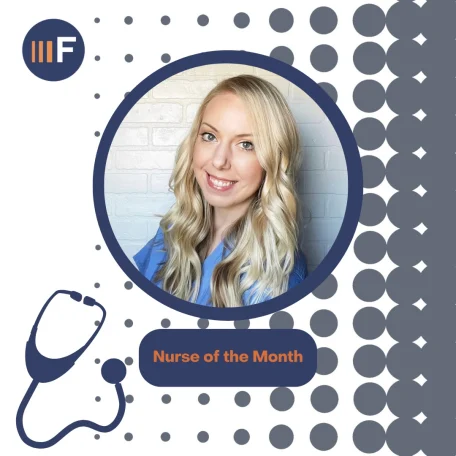An
company | Our brands
(800) 736-8773 | Monday – Friday, 8am to 5pm MT
Blog & News/2015's Most Common Allergies & How to Avoid Them
2015's Most Common Allergies & How to Avoid Them
Nurses are the front line of defense for patients with allergies, so knowing how to prevent reactions is part of the job. There is no exception with travel nurses. They carry as much responsibility for allergy management as any medical professional, but they must do it an unknown environment.
Allergens consist of food, chemicals, perfumes and airborne triggers such as dust. Since nurses interact with both patients and the environment, they run the risk of exposing a person in their care to a potential trigger. Allergy training also protects the nurse from potential allergic reactions. Consider some of these common allergies and what you can do to prevent reactions.
1. Rubber Latex
Latex allergies are one of the biggest challenges for nurses because so much of the assets used in healthcare have latex. This allergy tends to be severe, as well, meaning once triggered, the patient goes into anaphylactic shock quickly.
Latex allergies are a big problem for nursing professionals, as well, because of their extensive exposure to natural rubber latex gloves. Each time they reglove, they may increase their sensitivity to the latex and the risk of developing a full-blown allergy. It is essential that nurses be aware of the signs of a latex reaction:
Urticaria or hives
Swelling
Peeling skin where the latex touches
Alert the administration of even a mild reaction to latex. If possible, avoid NRL gloves and use alternatives such as neoprene. Practice good hand hygiene to prevent transferring particles from the gloves to patients. When putting on latex gloves, avoid snapping them and sending particles into the air.
2. Cleaning and Disinfecting Agents
Nurses are routinely exposed to harsh solutions that may cause a skin reaction. This can affect both the nurse and the patient. As a general rule, wear gloves when handling any chemical solution including iodide and formaldehyde. Change your scrubs immediately if you splash any harsh chemical on your body. Wipe your skin under the fabric before redressing and wash your hands thoroughly with each encounter.
3. Perfumes
Nurses live a fragrance-free life. That means no perfume or fragrance products while working. Make sure to shower before you start your shift to remove any traces of perfume from your body. Avoid heavy scented products like shampoo, lotions and fabric softener.
Nurses do come in contact with patients wearing perfume. Always wear gloves when touching patients and avoid brushing up against them as much as possible. Good hand hygiene will help prevent transfer between patients, as well.
4. Peanuts and Other Food Allergies
Food allergies account for about 30,000 anaphylactic reactions in the U.S. Peanuts and other tree nuts top off the list of severe food allergies, especially in children. Nurses are trained to manage patient’s diets, especially if they have known food allergies. Get in the habit of checking the patient’s records before giving any snacks or meals out to avoid triggers. Keep an eye on visitors, as well, who may bring food into hospital patients.
Nurses should avoid handling top allergens during their shifts, too, such as nuts and shellfish. The peanut butter crackers you have for a snack break may be enough to trigger a reaction in a patient with a severe allergy. Wash your hand before and after you eat and again before you see each patient. Review the known allergies for your patients, so you are aware of any possible triggers.
It is not possible to completely eliminate the risk of allergies when you work in such a diverse environment. The best travel nurses can hope for is to minimize the chance of exposing a patient to the allergen. Read the facility’s protocols on allergy management as you move from place to place to ensure compliance.
Awareness and good hand hygiene are the keys to avoiding problems. Managing your exposure to known allergens, such as peanuts, helps you protect the people who trust you with their care. For more information, visit Fastaff’s resources page.


